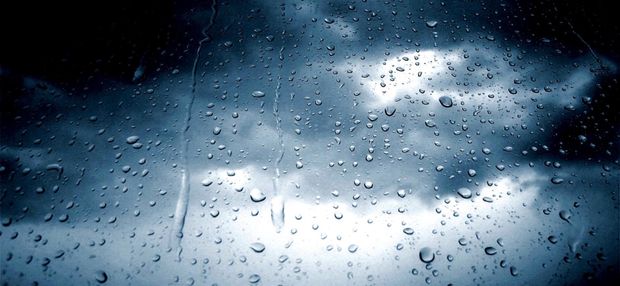You've probably had the experience where, during a particularly bad weather day, your mood takes a turn for the worse.
As the clouds thunder through the sky and rain pours down the street, maybe you feel your mood growing darker and darker. Or maybe you've felt particularly happy on a bright sunny day—like you were in a very light mood and that nothing could go wrong.
Weather affects how we feel. But does it also affect how we think? And can the weather affect our memory?
Having previously written prolifically about how to study more efficiently, stay motivated, and memorize vocab words, the Brainscape team is of course intrigued by this topic. So let's take a look.
The link between weather and memory
In a study done in Australia, researcher Joseph Forgas and his team found that people remembered better during bad weather or when they were not in the best moods.
Their test went like this: first, they placed 10 unusual objects at the checkout counter of a local shop. Then they asked shoppers about those objects and how many of those objects they remembered seeing as they were passing through the checkout. They asked some shoppers on bright, sunny days, and others on dark, gloomy days.
The results were startling: people remembered significantly more objects on the darker gloomy days. Why?

Why does bad weather improve memory?
This is the explanation that the researchers gave for the findings.
When it is gray and gloomy, you experience a drop in your mood and as a result are more likely to focus deeper on the things around you. You become more sensitive to your environment, pay more attention to it, and are therefore able to remember things better.
On the other hand, when you are happy or in a good mood, your mind may be less focused and more scattered. You're distracted by the potential joy of playing outside. You might therefore remember less.
Sad moods improve memory
Additional research seems to confirm this finding: sad moods seem to create cognitive benefits.
The more you think about it, the more sense it makes: it is always easier to remember bad days than good days because your mind focuses so particularly on the negative events of those particular days. The weather has the power to somber one’s mood and in turn manipulates you into focusing more on your surroundings, mimicking that same effect of focus that appears when you are having a bad day.
It's also possible that when you're sad or anxious, your brain is especially attuned to information that might help improve your current state.

Heat may reduce memory
Another study linked hot weather with poorer cognitive performance. These researchers did a study with college students in Boston were asked to do two cognitive tests each morning in the middle of a heat wave. One of the tests measured reaction time and the other measured cognitive speed and working memory. The students fell into two groups: those that had air conditioning, and some didn't.
The researchers found that those students that had air conditioning had cooler living spaces. That's obviously not surprising: if you had A/C in the middle of a heatwave, you'd use it too.
What was surprising is that those in the cooler climate performed much better than those in the hotter climate on both the tests. They had quicker reaction times, faster cognitive speeds, and better working memory.
The authors suggest that the temperature of our environment significantly affects our cognitive processing.

Use bad weather to your advantage
Perhaps we should always have bad weather so that we can use our brains to the fullest potential possible … or maybe not. We would probably go crazy if the weather was dark and cold all the time.
However, you can use the results of these studies to your advantage. Rather than complaining about the rainy weather, take advantage of it, and use it to get some serious studying done. You'll remember what you learn much better!
And be sure check out our guides to the best way to memorize vocab words and boost your vocabulary, and how to improve your brain health.
Sources
Cedeño Laurent, J. G., Williams, A., Oulhote, Y., Zanobetti, A., Allen, J. G., & Spengler, J. D. (2018). Reduced cognitive function during a heat wave among residents of non-air-conditioned buildings: An observational study of young adults in the summer of 2016. PLoS medicine, 15(7), e1002605. https://doi.org/10.1371/journal.pmed.1002605
Forgas, J. P. (2013). Don’t worry, be sad! On the cognitive, motivational, and interpersonal benefits of negative mood. Current Directions in Psychological Science, 22(3), 225-232. https://doi.org/10.1177%2F0963721412474458
Forgas, J. P., Goldenberg, L., & Unkelbach, C. (2009). Can bad weather improve your memory? An unobtrusive field study of natural mood effects on real-life memory. Journal of Experimental Social Psychology, 45(1), 254-257. https://doi.org/10.1016/j.jesp.2008.08.014
